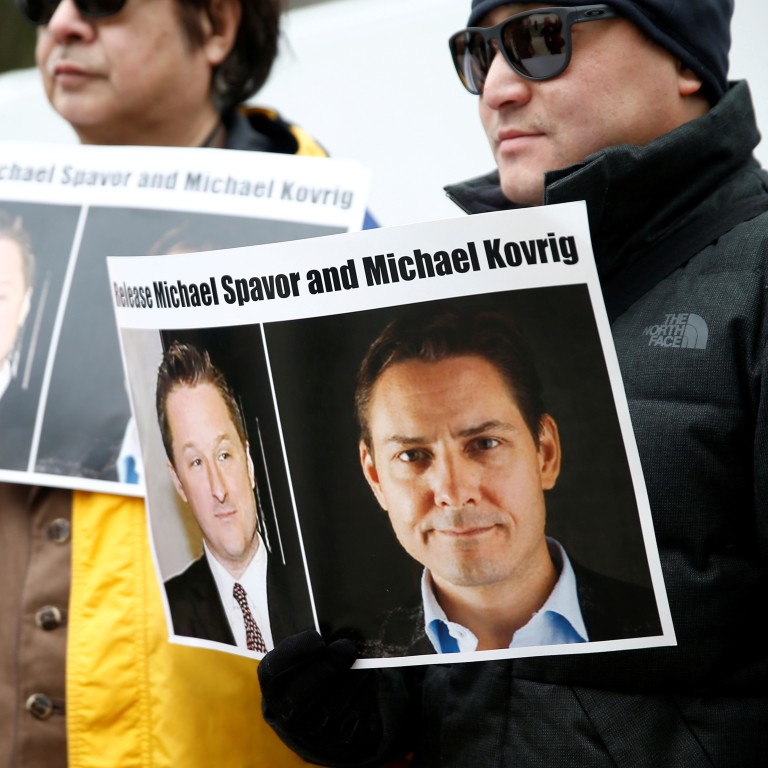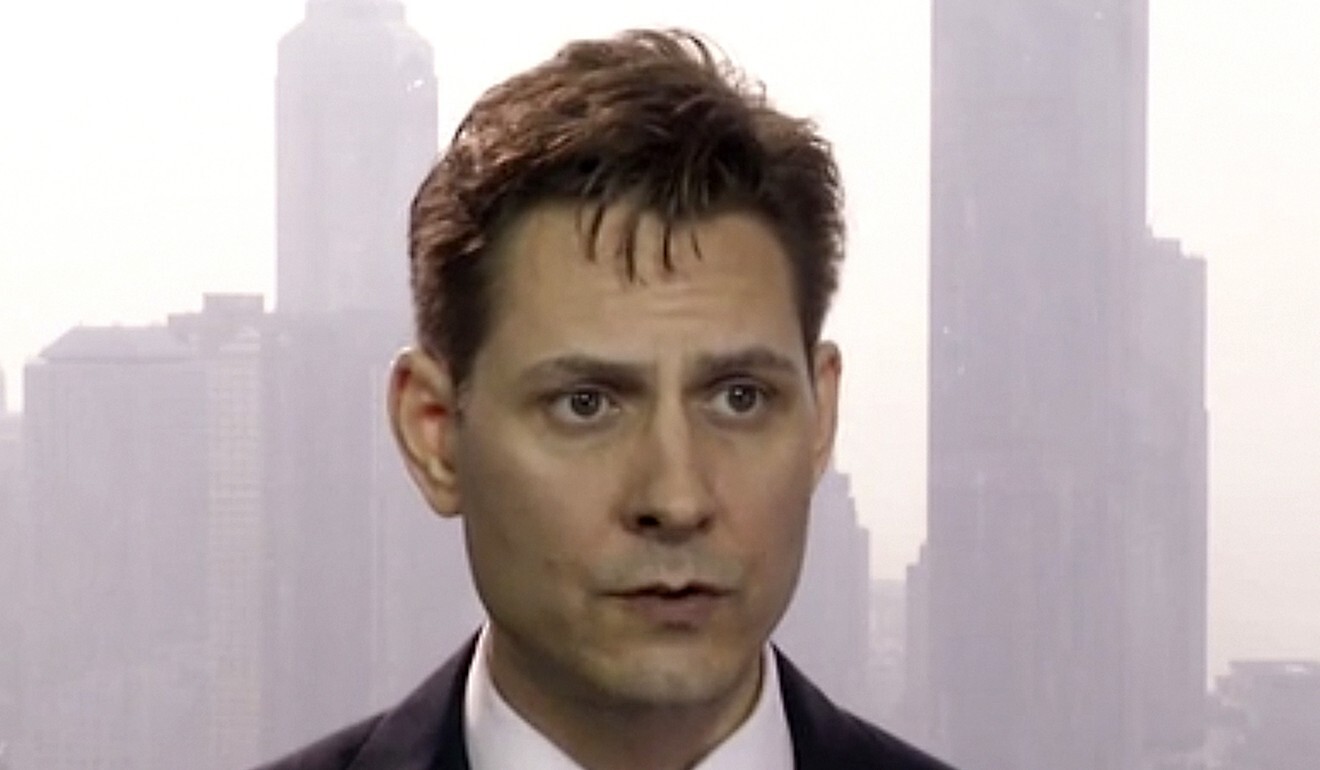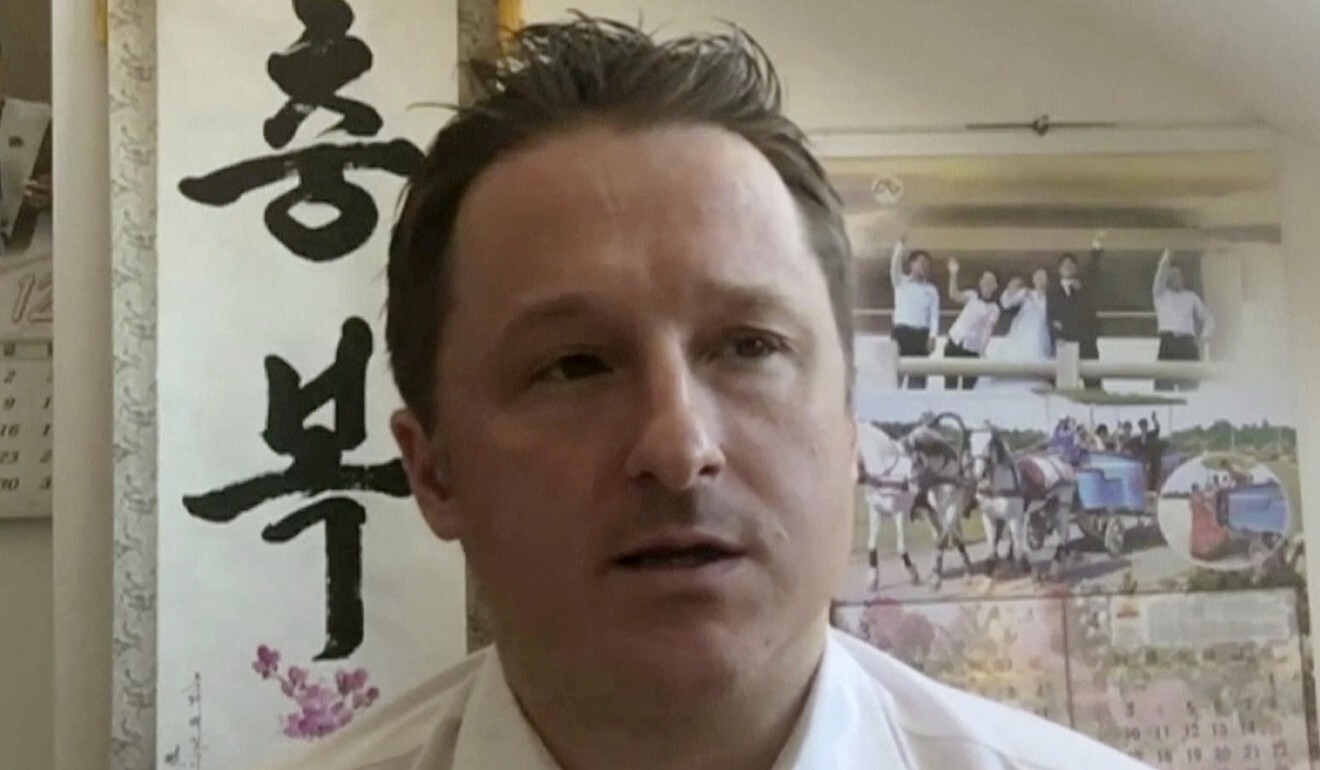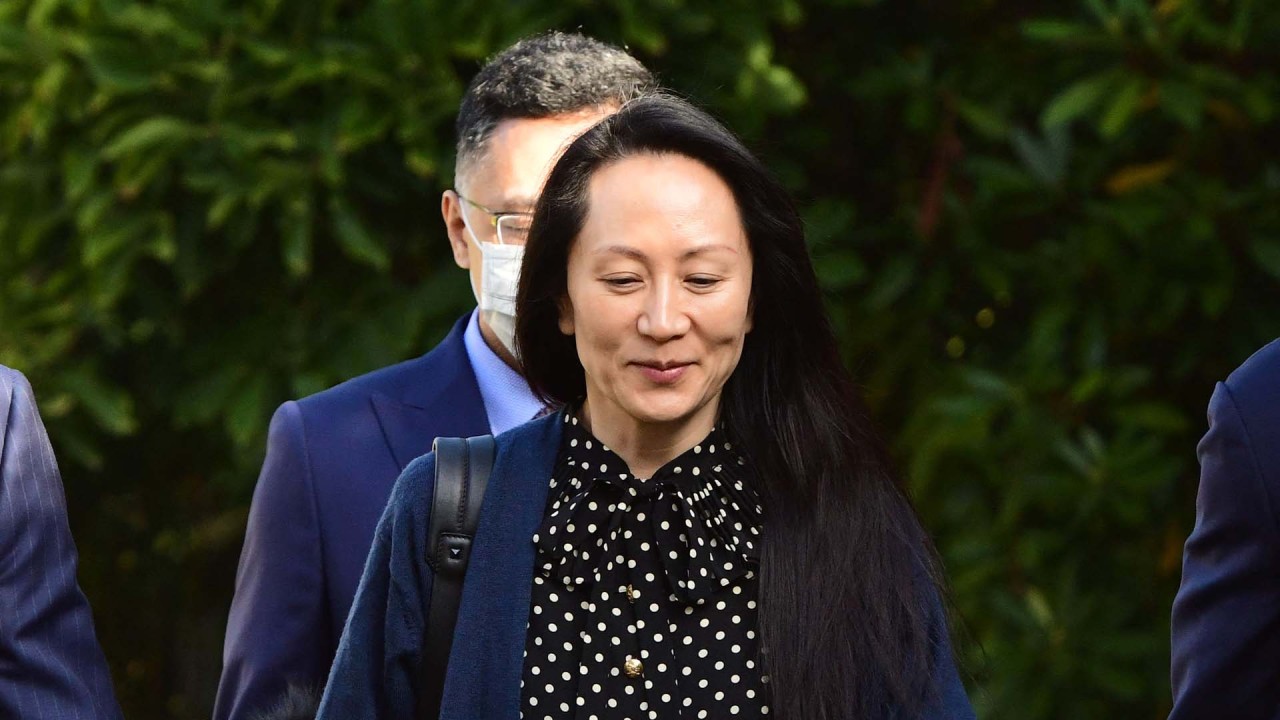
Supporters of Canada’s ‘two Michaels’ Spavor and Kovrig express relief but condemn China’s ‘arbitrary detention’
- Pair who were held on spying charges are allowed to board a flight home hours after Meng Wanzhou left Canada
- Observers say timing of their release after US sanctions case against Huawei executive was settled suggests a quid pro quo with Beijing
The release of two Canadians after nearly three years in what was widely seen as “arbitrary detention” in China was greeted with relief and celebration on Saturday.
The two men, accompanied by Dominic Barton, Canada’s ambassador to China, flew from Beijing to Calagary on Saturday to be greeted by Prime Minister Justin Trudeau on their arrival.
“These two men have been through an unbelievably difficult situation, but it is inspiring and it is good news for all of us that they are on their way home to their families,” Canadian Prime Minister Justin Trudeau said on Friday as he announced their departure.

“I want to thank our allies and partners around the world in the international community who have stood steadfast in solidarity with Canada and with these two Canadians,” he said, without providing details of how the release came about.
US Secretary of State Antony Blinken wrote on Twitter that Washington “welcomed” China’s decision to release the Canadians “after more than two-and-a-half years of arbitrary detention”.
The US, Canada and other allies had repeatedly pressed China to release Kovrig, a former diplomat who worked for a non-profit organisation, and Spavor, a businessman with ties to North Korea.
“The day we have been waiting for 1,020 days has finally arrived. Michael Kovrig is free,” Comfort Ero, interim vice-president of International Crisis Group (ICG), the agency for which Kovrig was a full-time adviser, said in a statement. “To the inimitable, indefatigable, and inspiring Michael Kovrig, welcome home!”
Jacco Zwetsloot, a friend of Spavor who hosts a podcast for the NK News website in Seoul, said: “When I saw the news last night when I went to bed that Ms Meng had worked out a deal and was going to be released, I thought, ‘Great, now in a few months time we can expect that the two Michaels will be released’.
Meng Wanzhou’s tear-soaked message to China as she soars over Arctic
“Never in my wildest dreams did I imagine that it would happen the same day, that the two planes would virtually cross each other’s paths across the Pacific Ocean.”
Meng was expected to land in Shenzhen on Saturday night, after reaching a deal on Friday with prosecutors in New York that effectively resolved a US fraud case that had kept her in Vancouver as she fought extradition.
“By putting them on the plane tonight, they’ve clearly acknowledged that this was hostage taking,” Colin Robertson, a former Canadian diplomat, told the Canadian Broadcasting Corporation. “And that’s something we’re going to have to be conscious of going forward.”
The case played out amid a Trump-era campaign to counter the global expansion of Huawei, a company founded by Meng’s father, Ren Zhengfei.

Meng on Friday agreed to a “statement of facts” about the case, including that she misled HSBC about the company’s business in Iran, in violation of US sanctions. Her charges will be formally dropped in 2022.
Advocates for Spavor and Kovrig have pointed to stark differences in the treatment of Meng and the two Canadians.
Meng was able to live at her Vancouver mansion, see her husband and children and move within the city with an ankle bracelet tracker.
But Spavor and Korvrig were imprisoned in Liaoning province and Beijing respectively and received sporadic consular access.
Huawei’s Meng Wanzhou flying back to China after striking deal with US
Between January and October 2020 they were denied virtual or in-person contact with Canadian officials due to controls the Chinese government attributed to Covid-19.
Little information about the charges against them was released and no evidence was offered.
Both men were charged with spying in June last year and separate closed-door trials were held in March, more than two years after their detention.
In August, a Chinese court sentenced Spavor to 11 years in prison for “spying and illegal provision of state secrets abroad”. No verdict was released in Kovrig’s case.
Details about the cases were released for the first time only weeks ago, when Global Times, a tabloid run by party mouthpiece People’s Daily, said Spavor had taken photos and videos of secret military equipment and sent them to Kovrig.
Supporters of Canadians detained in China mark 1,000th day
Western officials and those who know the men said they believed the charges had been fabricated.
Before his detention, Kovrig had been the North East Asia Adviser for ICG. He had spent four years until 2016 as a diplomat in mainland China and Hong Kong, attaining fluency in Mandarin.
His wife, Vina Nadjibulla, has been an outspoken advocate for both his release from Canada.
She and family members of Spavor took part in a march held in Ottawa earlier this month meant to replicate the 7,000 steps Nadjibulla said her husband has tried to walk every day in his cell to maintain his physical and mental well-being.
Spavor ran a consulting business in the Chinese border city of Dandong that arranged cultural exchanges, tourism and investment projects in neighbouring North Korea.
A fluent Korean speaker, he is among the few Westerners personally acquainted with Kim Jong-un, once sharing drinks with the North Korean leader on his private yacht.
In 2013 and 2014, Spavor arranged several high-profile visits to the country by the former basketball player Dennis Rodman.

00:38
US to drop charges against Huawei’s Meng Wanzhou, allowing her to return to China
Their release following Meng’s “seems to be a quid pro quo”, according to John Lee, a senior fellow at the Hudson Institute in Washington, who added China had “long used the threat of arbitrary arrest of nationals from countries with whom Beijing has ongoing disputes”.
“Beijing will continue to find ways of threatening and punishing Canada should the latter pursue a tougher foreign and security policy towards China as countries such as the US, Australia, UK, Japan and India have done,” said Lee, who is also an adjunct professor at the United States Studies Centre at the University of Sydney.
“The release of the two Canadians does not signal the end of the hostage-taking practice, and in fact, might encourage its expanded application in the future because it appeared to work for Beijing in this instance,” said Drew Thompson, a visiting senior research fellow at the Lee Kuan Yew School of Public Policy at the National University of Singapore.
For friends of Spavor and Kovrig, their imminent return to Canada is the main focus. Jon Dunbar, a newspaper editor in Seoul who has known Spavor for more than a decade, said he was looking forward to reconnecting with his friend.
“I am looking forward to him being aware of all the support we’ve sent him over the last 1,000 plus days. We have a lot of catching up to do, and I hope to see him in Korea again, when he’s ready.”


